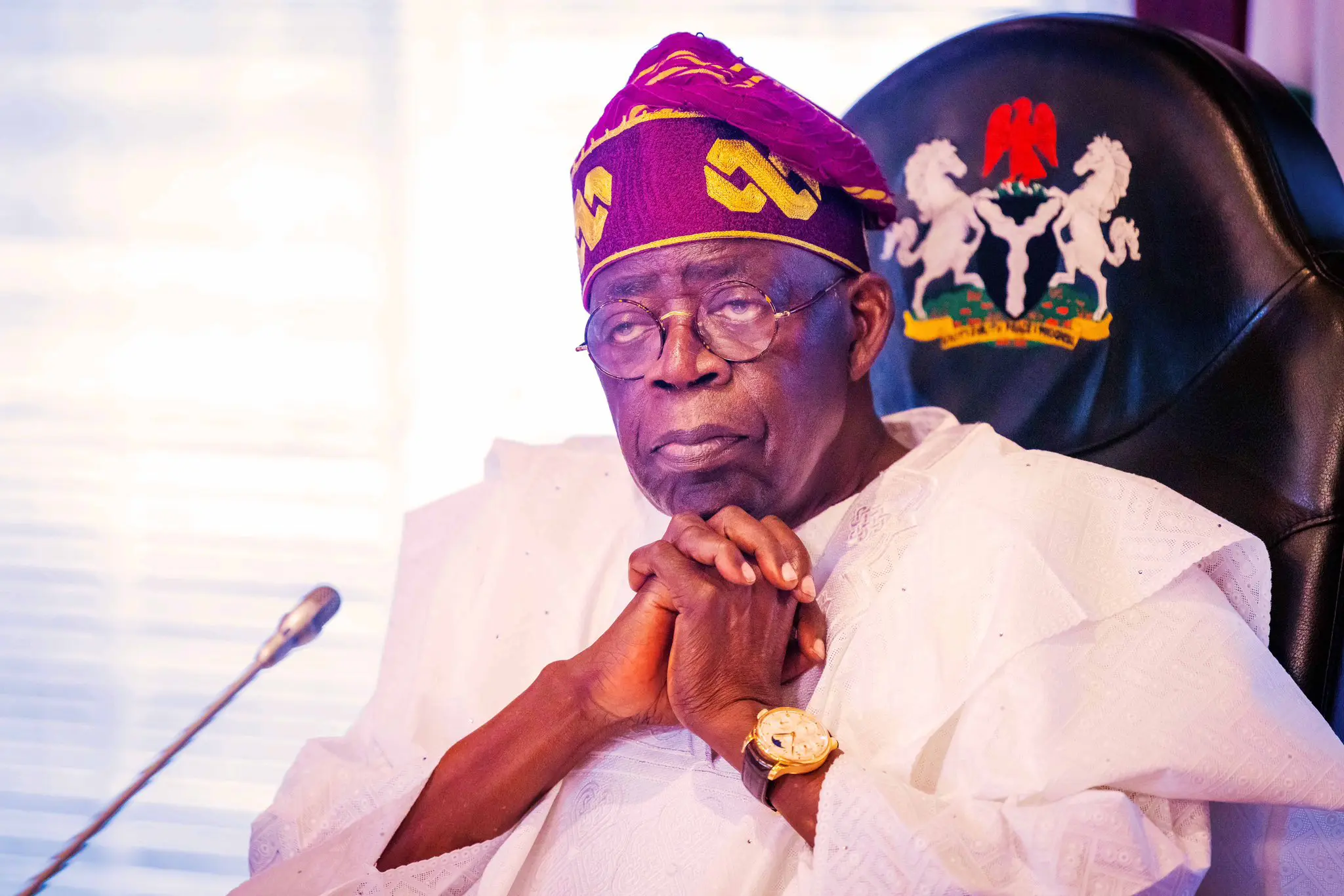Only last year, President Bola Tinubu proclaimed the death of fuel subsidies in his inaugural speech. Though muted for years, it was a move that no one quite expected, especially not at a presidential inauguration.
That announcement instantly led to an increase in pump prices of PMS from N197 to anything between N480 and N570 per litre. Two months later, the prices were reviewed upward to the region of N617 per litre at various NNPCL outlets.
Good intentions, yes, because the subsidy scam is real, it is massive, and it is dangerously detrimental to the country. Everyone who understands anything about subsidies agrees. The execution of this necessary decision, however, could have been better. It could have been way, way better.
The immediate consequence was, therefore, runaway inflation and price spikes experienced throughout the country. Nigeria has never been the same since.
- 2027: We are working to bring Kwankwaso, Obi back into our fold – PDP
- Doyin Okupe: Why I dumped Obi for Tinubu
As the saying goes, a fly that does not heed a warning will follow a corpse to the grave. After a year of trying to wing it with the subsidy removal, the government has realised that decades of fuel subsidy have so eroded the foundation of our economy that withdrawing it completely at this stage and in these circumstances is no longer sustainable.
So a partial subsidy was reintroduced, and had to be reintroduced, to stabilise pump prices, as the NNPCL confirmed in March this year. This is largely because the government’s fiscal policy of floating the naira to bring an end to multiple exchange rates has unfortunately resulted in the weakening of the naira against the US dollar, which at the time was trading at around N460 to a dollar but now sells at around N1,600 to a dollar. And since Nigeria is importing refined PMS and paying for this in dollars, it is impossible for pump prices to stabilise without support, i.e., subsidy.
So, the government had to make the difficult decision to renege, and the NNPCL had to step in. This came at a cost and nearly, very nearly killed the company, Nigeria’s sole importer of refined products. The NNPCL’s debt to oil traders has raced past the $6 billion dollar mark, doubling since April this year because it is covering for shortfalls in Nigeria’s petrol import bill.
“This financial strain has placed considerable pressure on the company and poses a threat to the sustainability of fuel supply,” NNPC’s spokesperson, Olufemi Soneye said in a statement in March.
Only last month, the federal government had to cough up $300 million to bail out the NNPCL from drowning in debt to oil traders and save Nigeria from a fuel drought because suppliers were all set to cut off supplies until they got paid. To get the NNPCL out of this muck, the government will have to dish out N4.71 trillion to settle outstanding debts incurred for importing petrol. So, in the end, the government has had to resume subsidising petrol to stabilise the market and keep commodity prices stable, even if high. How much exactly is that costing the state?
As of July, the landing cost for one litre of fuel is N1,117, according to the NBS. Keeping the pump prices around the N600 mark means coughing up about the same amount to make up the difference. This cost would have ordinarily been borne by the struggling Nigerian. For diesel, the landing cost is N1,462.98/litre. The pump price is N568, which means the subsidy per litre is N549. That is simply insane. But in these very difficult times, it is a necessary intervention the FG must make. The alternative is total chaos, which, as we all know, Nigeria simply cannot afford.
But is this a sustainable intervention? Far from it. A country should not be forking out $10 billion a year (as we did in 2022 for petroleum products) to traders to subsidise any product. It doesn’t make economic sense. If invested in infrastructure and nation-building, rather than building the pockets of oil traders, it would go a long way in changing this country.
In March, the IMF mission chief for Nigeria, Axel Schimmelpfennig, said that “The capping of fuel pump prices and electricity tariffs below cost recovery could have a fiscal cost of up to three per cent of GDP in 2024.” However, Mr. Schimmelpfennig’s suggestion that instead of subsidising fuel, the FG should transfer cash to households seems a bit like a brick-and-hammer approach. In Nigeria’s climate of corruption, cash handouts have never worked out well, especially in a system where a lot of Nigerians do not have bank accounts, where transaction trails are easily lost in the dust of corrupt practices and murky digital footprints. That means the money could end up in the pockets of corrupt officials. Subsidising poverty doesn’t seem like a good way to replace fuel subsidy.
But make no mistake, the decision to end the subsidy by the government was the right one and a gutsy one at that. The hasty implementation was the problem. To understand why this is the case, we must understand how we got here. After all, a proverb advises that we don’t look at where we fall, but where we stumbled.
The subsidy regime was first introduced in the early 1970s and was supposed to be a temporary intervention until it was institutionalised in 1977. Since then, the scam has endured, the size of the offering to the oil cabal has continued to bloat, eating into our GDP and limiting what could have been utilised for other developmental needs of the country. Attempts to end the subsidy have been tentative at best, until Obasanjo pulled a major plug, shooting pump prices up from N65 to N75. His successor Umaru Yar’adua reversed that attempt and kept the prices at N65 per litre until his death. Jonathan’s 2012 attempt to end the subsidy on petroleum products was met with angry reactions and protests from Nigerians that forced the government to make concessions and drop pump prices.
The previous administration of Muhammadu Buhari for eight years promised to implement reforms aimed at cushioning the effects of the eventual removal of subsidy. A timeline was announced and reviewed several times, finally days before the final implementation date of June 1, 2023, the government balked.
Tinubu’s mistake was walking into this room, thinking that cushioning mechanisms had been built up in the past few years, and what was lacking was the political will, and making that bold and now infamous declaration. He should have studied the cushioning effects the Buhari administration had promised but failed to put in place before making such a bold decision.
What is not in question is that the earlier the government extricates itself from the subsidy debacle, the better for the country. But considering how this thing has entwined itself with the blood vessels of this country, it must be extricated tactfully.
There are two ways to combat this. First, Nigeria must immediately boost local refining of petroleum products. That will cut down the landing cost, cut out the transport cost of first exporting our crude and then re-importing its refined distillates, all of which must be paid in hard currency. The Dangote Refinery will play a crucial role in this, as will the other four local refineries as soon as they resume operations.
The second alternative is to curb our over-reliance on PMS and adopt compressed natural gas (CNG), which is abundant in Nigeria, cheaper, and far more cost-effective for the user.
Having said that, the government’s decision to reintroduce subsidies at this time to curtail inflation and stabilise the market is crucial in mitigating the suffering of Nigerians. It should not deter the government from implementing reforms, but these reforms must be guided by carefully thought-out scaffolded policies to mitigate the suffering of Nigerians.
Some mistakes are costly, and this one certainly has been. But the most expensive mistakes are the ones we never come back from. The government’s decision to resume subsidies is, in the short term, necessary and hopefully will be the first step in reforming the system and easing the hardship on Nigerians.

 Join Daily Trust WhatsApp Community For Quick Access To News and Happenings Around You.
Join Daily Trust WhatsApp Community For Quick Access To News and Happenings Around You.


